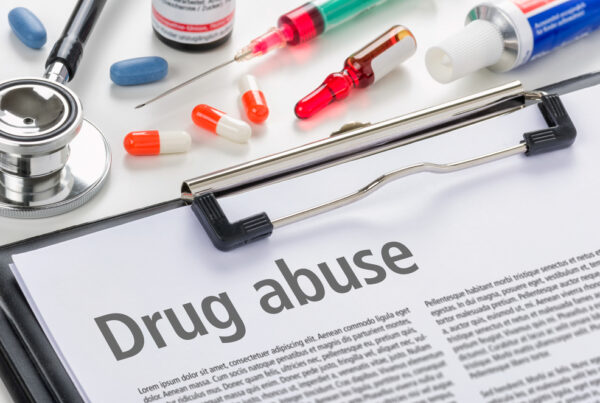Clinically referred to as substance use disorder (SUD), addiction, is listed in the Diagnostic and Statistical Manual of Mental Disorders, Fifth Edition (DSM-5) as a complex, chronic brain disorder. The Merriam-Webster Dictionary defines addiction as “a compulsive, chronic, physiological or psychological need for a habit-forming substance, behavior, or activity having harmful physical, psychological, or social effects and typically causing well-defined symptoms (such as anxiety, irritability, tremors, or nausea) upon withdrawal or abstinence.” An individual struggling with addiction will prioritize satisfying his or her cravings (e.g., drugs, sex, gambling, etc.) above all else, which can wreak havoc in every facet of one’s life. Substance use disorder is not developed instantaneously, nor does one’s recovery from addiction occur immediately. In many cases, it is advantageous for individuals struggling with substance abuse and/ or addiction to obtain guidance from a mental health professional.
A psychologist, as explained by the Cleveland Clinic “is a mental health professional who uses psychological evaluations and talk therapy to help people learn to better cope with life and relationship issues and mental health conditions.” There are many different areas in which a psychologist might specialize. Clinical psychologists are qualified to assess, diagnose, and treat individuals experiencing psychological distress and mental illness. When a psychologist is presented with an individual struggling with addiction, it is common practice to develop a customized treatment plan that incorporates one or more therapeutic strategies. Psychologists may perform any combination of the following psychotherapeutic modalities when treating a client with addiction:
- Cognitive behavioral therapy (CBT): focuses on challenging and changing unhelpful cognitive distortions and behaviors, improving emotional regulation, and developing personal coping strategies to problem solve effectively.
- Dialectical behavior therapy (DBT): utilizes four main strategies (e.g., core mindfulness, distress tolerance, interpersonal effectiveness, emotion regulation) for teaching individual’s skills that help with effectively changing their behaviors.
- Interpersonal therapy (IPT): focuses on how a person’s communications and interactions with other people affect his or her own mental health.
- Eye movement desensitization and reprocessing therapy (EMDR): utilizes guided eye movement techniques to help process one’s memories, thoughts, and emotional associations in relation to abusing drugs and/ or alcohol.
- Motivational interviewing (MI): is a counseling method that helps people resolve ambivalent feelings and insecurities to find the internal motivation they need to change their behavior.
- Expressive arts therapy (e.g., play therapy, art therapy, music therapy, drama therapy, sand therapy, etc.): provides an alternative medium to express, process, and integrate one’s thoughts and feelings surrounding the recovery process.
To provide an individual with the highest potential for a successful, long-term recovery, a psychologist will consider all treatment options, and incorporate the best possible therapeutic modalities, that are expressly geared to each client’s personal needs.
The information above is provided for the use of informational purposes only. The above content is not to be substituted for professional advice, diagnosis, or treatment, as in no way is it intended as an attempt to practice medicine, give specific medical advice, including, without limitation, advice concerning the topic of mental health. As such, please do not use any material provided above to disregard professional advice or delay seeking treatment.




